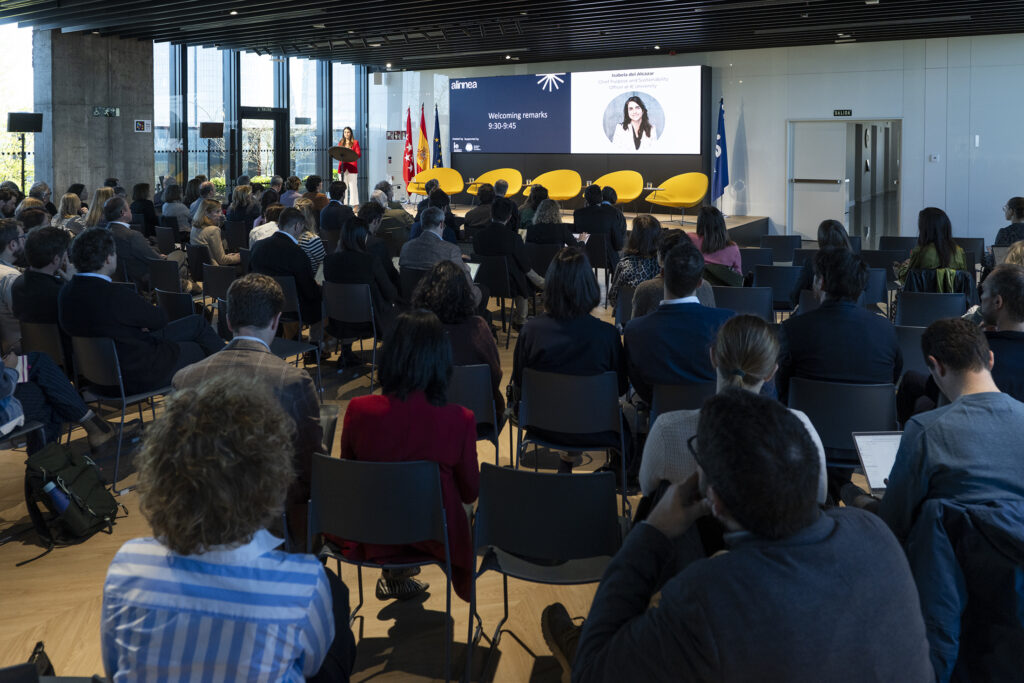Our recent high-level conference, “Driving Impact: Financial Pathways for a Clean Industrial Transformation”, successfully convened business leaders, public decision-makers, and financial stakeholders to explore Europe’s leadership in climate action while maintaining industrial competitiveness. Discussions centered on creating a “win-win-win” scenario benefiting the private sector, engaging citizens, and aligning with public sector objectives. The event featured insightful contributions from prominent figures, including Nadia Calviño, President of the EIB Group, and Enrico Letta, Dean of IE School of Politics, Economics and Global Affairs and former Prime Minister of Italy. Their expertise shed light on innovative financial strategies to accelerate the clean industrial transition, ensuring Europe remains at the forefront of sustainability and economic resilience.
Read the event summary

To truly enable the European green transition, we must focus on overcoming the current fragmentation within financial markets and regulatory frameworks, alongside addressing the scaling challenges that green industries face. Improving access to capital markets is essential to fuel innovation and drive sustainable growth across the continent.
While the EU Taxonomy has provided a crucial starting point for mobilizing private capital, its wider impact now requires better data, consistent standards, and a stronger emphasis on both resilience and adaptation measures to effectively direct investment towards green initiatives.
Although supportive clean industrial policies are vital, their ability to attract investors depends on establishing a clear economic rationale for businesses aligned with climate goals. Given that decarbonization is an irreversible global trajectory, establishing this strong business case is the key to unlocking the necessary capital and securing the future competitiveness of clean industries.
The foundational vision of shared resources that once underpinned Europe’s pursuit of peace now carries a clear imperative for its leadership: all investments must be strategically directed to fortify the EU’s resilience, enhance its unity, and develop its infrastructure to amplify its global influence.
Acknowledging the profound political and financial consequences of the EU Green Deal is essential. Ensuring the meaningful inclusion of stakeholders like farmers, automotive workers, and households, coupled with significant investment in a strong social safety net to support the changes ahead, is crucial for a successful transition. Without these inclusive connections, the ambitious goals of the Green Deal risk falling short.
Alinnea’s Working Groups operate on three fundamental principles: a commitment to fully acknowledge and address the real financial burdens of the climate transition, a dedication to incorporating the diverse perspectives of all affected parties, and a grounding of all discussions in the immediate and pressing realities of the climate challenge. This approach aims to generate outcomes that are both implementable and inclusive, while also maintaining a strong focus on future implications.
A persistent bottleneck hindering climate progress in many areas is the inadequate accounting for externalities, which obscures the true costs of inaction. Progress requires the development of strong and comprehensive mechanisms that integrate environmental and social costs into our decision-making processes. Additionally, while the importance of reporting and taxonomy cannot be overstated, and their simplification would be beneficial, this streamlining must not come at the cost of essential regulatory frameworks.